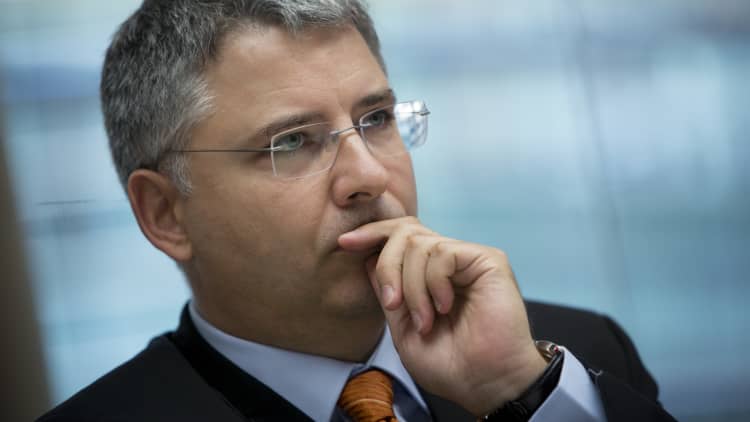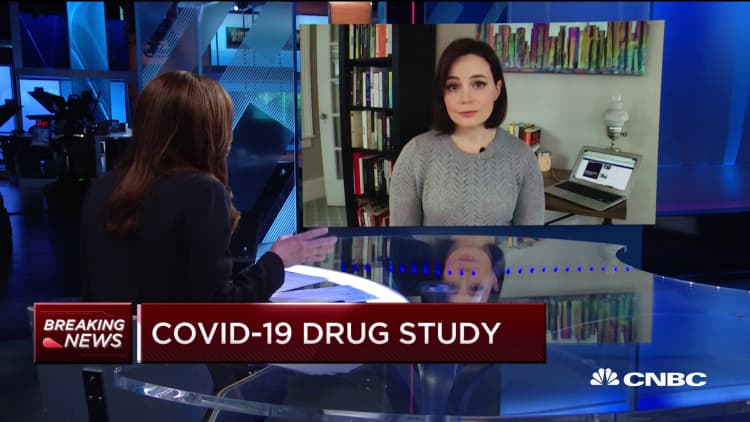
The United States won't be able to test broadly for the coronavirus for "weeks, if not months," Severin Schwan, CEO of Swiss diagnostics maker Roche, told CNBC on Monday.
"No doubt, ideally we would have broader testing, but at the moment, capacities are limited," Schwan said on CNBC's "Squawk Box." "I think this is still a couple of weeks, if not months, out, and the reason is very simple."
Testing in the U.S. has been hampered by delays and a restrictive diagnostic criteria that limits who can get tested. The Centers for Disease Control and Prevention still says that only those most at risk of the virus should get tested. However, World Health Organization officials have criticized nations for not testing enough people proactively.
Federal officials say they are trying to ramp up testing. Since the emergence of the outbreak, the U.S. government has granted approval for a broader set of labs to start testing, and White House officials said they are expediting the development of commercial tests.
Earlier this month, the Food and Drug Administration issued emergency authorization for a coronavirus test made by Roche. Schwan said Monday that the company has distributed about 400,000 test kits throughout the country in the past week. The tests, he said, can deliver results to patients in less than 24 hours. Companies, though, can't produce test kits quickly enough to keep up with the spread of the virus, he said.
"The industry is increasing capacities, but at the same time infection rates are even increasing faster," Schwan said. "At the moment, capacities are limited. That is why we have to prioritize testing to higher risk patients."
The virus is now spreading rapidly in some parts of the U.S. as hospitals ramp up for an influx of patients that local and state officials say will put the country's health-care system to the test. The virus has infected more than 41,500 people in the U.S., according to Johns Hopkins University, and killed at least 499 people. However, officials say the true number is likely much higher due to limited testing capacity.
WHO officials have said that preemptively testing broadly throughout the population is key to containing the outbreak. South Korea, for example, has tested more than 338,000 people in the country for COVID-19 since Jan. 3 and has contained the outbreak there to fewer than 9,000 infections. The virus has killed at least 111 people there so far.
"We have a simple message for all countries: Test, test, test. Test every suspected case. If they test positive, isolate them and find out who they have been in contact with two days before they developed symptoms and test those people, too," WHO Director-General Tedros Adhanom Ghebreyesus said earlier this month.



